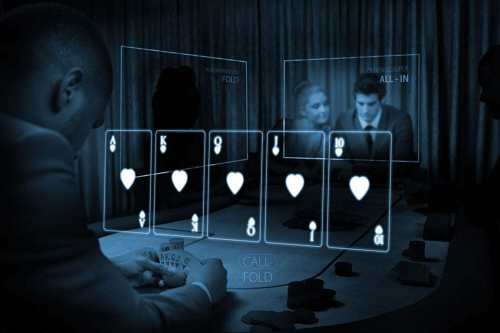The Rise of the Video-Game Gambler
Alan Burdick
Among the more insidious gifts that video games have bestowed on modern culture is the loot box. A loot box is like an in-game lottery ticket: for a small fee, involving real money, a player can purchase an assortment of items that promise to enhance the game experience. In Overwatch, a pack of five loot boxes ($4.99) might land you a legendary skin that makes your Hanzo character look like a Kabuki figure. In FIFA 18, a Premium Gold Pack ($7.50) might get you Messi and some valuable player contracts for your Ultimate Team. The emphasis is on might: you might get Messi, but more likely you’ll get some bench player from an Italian Serie A squad whom nobody will want when you try to trade him. The actual odds of winning a legendary Overwatch skin are somewhere between one in eleven and one in thirteen.
Loot boxes are an appealing source of income for game developers, and they’ve been integral to the rise of smartphone “freemium” games, which are free to download but can’t be fully enjoyed unless the player pays for in-app boosts. For pretty much everyone else, loot boxes are a scourge. Players hate that they have to pay extra just to be competitive. Parents hate discovering, too late, that several hundred dollars in Clash Royale arena packs have been charged to their credit card. And, increasingly, government regulators are thinking that loot boxes look too much like gambling – gambling aimed at kids, no less. Belgium and the Netherlands have banned in-game loot boxes as a form of gambling, and Minnesota recently introduced a bill that would ban the sale of games containing loot boxes to people under the age of eighteen.
The concern isn’t merely prudish. In a finding that will surprise virtually no one, psychologists in New Zealand have discovered that loot boxes do indeed bear troubling similarities to gambling. The researchers, led by Aaron Drummond, of Massey University, looked at twenty-two console games released between 2016 and 2017, from Overwatch and FIFA 18 to Madden N.F.L. 18 and Star Wars Battlefront II. They noted how closely the loot-box system of each game aligned with five standard psychological criteria for gambling, including whether the loot box must be bought with real money, whether it has tangible value in the game or can be cashed out, and whether its contents are randomly determined. Ten of the twenty-two games, including FIFA 18, Assassin’s Creed Origins, and Halo Wars 2, ticked all five boxes. Six of those, as well as all the games that allowed players to cash out for real money, were rated appropriate for ages thirteen and older.

The appeal of the loot box, as with slot machines and other forms of gambling, derives from what’s known as the variable-ratio reinforcement reward. The over-all odds of winning a legendary skin from an Overwatch loot box might be just ten per cent, but the odds of winning vary with each box – maybe twenty per cent on one purchase, five per cent on another. That uncertainty, and the temptation of those occasionally higher odds, sucks the gambler in. The researchers found that, in one game, PlayerUnknown’s Battlegrounds, many of the desirable items could be bought through the in-game marketplace for less than the cost of opening a loot box and cashing those items out. Players gambled anyway, even if it meant losing money on dumb items and even though the desired items didn’t provide a competitive edge.
As a species, we are suckers for the seemingly-inexpensive-but-secretly-costly fix. There’s hardly a parent who doesn’t worry that video games are sapping kids of the motivation to engage in more creative, intellectual, or physical activities. The New Zealand study, which appeared as a comment piece in Nature Human Behaviour, suggests that those games exact a long-term financial toll, too. Plenty of research indicates that video gamers “might be a ripe breeding ground” for gambling behaviors, the authors note, and boys, who make up the majority of gamers, are especially susceptible. Game developers, sensing a public-relations backlash, have begun removing loot boxes from their titles. But there’s still a great deal of illusory treasure to maybe, possibly, be found, and a generation of youngsters eager to hunt for it.








